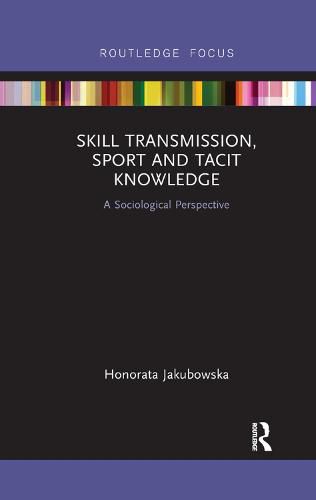Readings Newsletter
Become a Readings Member to make your shopping experience even easier.
Sign in or sign up for free!
You’re not far away from qualifying for FREE standard shipping within Australia
You’ve qualified for FREE standard shipping within Australia
The cart is loading…






Teaching the skills necessary to play sport depends partly on transmitting knowledge verbally, yet non-verbal or tacit knowledge also has an important role. A coach may tell a young athlete to ‘move more dynamically’, but it is undoubtedly easier to demonstrate with the body itself how this should be done. Skills such as developing a ‘feel for the water’ cannot simply be transmitted verbally; they are embodied in the tacit knowledge acquired from practice, repetition and experience.
This is the first sociological study of the transmission of skills through tacit knowledge in sport. Drawing on philosophy, sociology and theories of embodiment, it presents original research gathered from qualitative empirical studies of young athletes. It discusses the concept of tacit knowledge in relation to motor skills transmission in a variety of sports, including athletics, swimming and judo, and examines the methodological possibilities of studying tacit knowledge, as well as its challenges and limitations.
This is fascinating reading for all those with an interest in the sociology of sport, theories of embodiment, or skill acquisition and transmission.
$9.00 standard shipping within Australia
FREE standard shipping within Australia for orders over $100.00
Express & International shipping calculated at checkout
Teaching the skills necessary to play sport depends partly on transmitting knowledge verbally, yet non-verbal or tacit knowledge also has an important role. A coach may tell a young athlete to ‘move more dynamically’, but it is undoubtedly easier to demonstrate with the body itself how this should be done. Skills such as developing a ‘feel for the water’ cannot simply be transmitted verbally; they are embodied in the tacit knowledge acquired from practice, repetition and experience.
This is the first sociological study of the transmission of skills through tacit knowledge in sport. Drawing on philosophy, sociology and theories of embodiment, it presents original research gathered from qualitative empirical studies of young athletes. It discusses the concept of tacit knowledge in relation to motor skills transmission in a variety of sports, including athletics, swimming and judo, and examines the methodological possibilities of studying tacit knowledge, as well as its challenges and limitations.
This is fascinating reading for all those with an interest in the sociology of sport, theories of embodiment, or skill acquisition and transmission.